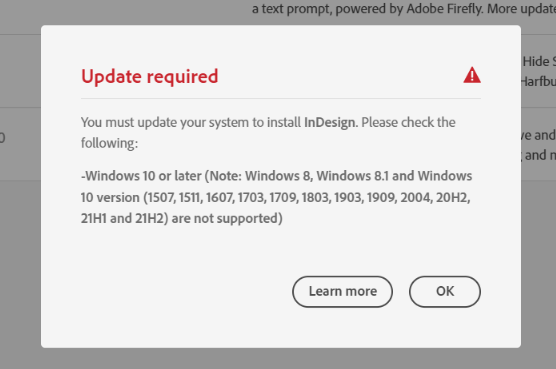Hi there @GolDNenex , yeah that’s normal, I’m not sure why it doesn’t work. However you can run it from a terminal with pkexec calamares to see the output, or even pkexec calamares -d for the full debug output.
Heard about Debian 12 from a friend. Was intrigued at fist until it wasn’t able to read the DVD/CD rom. Well that just invites looking for the missing bits to maybe find the suggestion found didn’t do anything, try another, another to the end thinking now how well my new install will be.
Manjaro, every major new release pooched something so much so it was a rebuild.
I really liked EOS, but samba share is important to me and I could never get it to work on EOS - it has to be KDE for me. So, that ended my EOS.
Same friend who told me about Debian 12 also said MX Linux is good on older hardware. It’s been nothing but great…except they came out with 23.1 and it had better performance. That started to put an end to distro hopping for me, maybe give EOS a spin again to see if samba set up is possible…when I’m for a challenge again. MX is just working without fudging the hell out of it.
So, why would I still look at the EOS forum? Still get the emails and I did like EOS…it looked and worked fantastic on my old 2008 Mac that gave me second wind to keep using it. But the samba thing got me a bit sour…haven’t given up on EOS…but the developed use of Arch is starting to fade.
I’ve run MX Linux in the past and was also pretty impressed with it. Debian 12 was the first time I’ve installed vanilla Debian to an Intel PC in a very, very…very long time. I’ve put Debian on ARM SBCs (like the Pine 64) but, it’s been a while since I’ve put it on a regular PC. Compared to my memory, it was pretty effortless and it’s really matured since the last time I messed with it.
I did notice that Spiral Linux is giving me btrfs by default. I didn’t see an option to pick any other file system. Did I miss it, or is that by design?
By design, Spiral use only btrfs because it add snapshots on the boot entries (and made automatic snapshots when updating)
This is a fundamental problem with Linux that I’ve posted about before on Linux forums but the Linux community will never acknowledge it.
Linux lacks stable binary API compatibilty, which means an app only runs on the exact libraries it was compiled against, hence we have different repos for each distro and rolling vs stable etc.
compare that to Windows/Mac, where you have one binary and it runs on any version of the OS. If it needs certain dlls etc it will be downloaded. Linux has nothing like this.
![]() I’m not sure, but maybe the fact that this is completely false is part of the reason “the Linux community will never acknowledge it.”
I’m not sure, but maybe the fact that this is completely false is part of the reason “the Linux community will never acknowledge it.” ![]()
These are called choices its one of the founding principles Linux is built on.
Just in case someone wanna try there is a new updated Spiral ISO
Even switching from stable to testing when I try it was better than using Spaky linux that is based on testing, “Spiral testing” was more stable, especially if you like music I found Spiral output sound better.
ok, so maybe any is an exxageration, but I’m sure you know what I mean, Windows goes to Herculean lengths to ensure backwards compatibility.
having 100 different repos for the exact same codebase isn’t choice, nor should it be needed.
I must insist, this is not accurate. Backwards- and forwards-compatibility is a major issue on Windows, just as it is on any OS.
As a present-day, real-world example of this, at work recently (I work in the IT department of an architecture firm) we are dealing with this issue where the latest round of updates to the Adobe suite (including Photoshop, InDesign, etc) is no longer compatible with Windows versions 21H2 or less, they must be 22H2 or higher to take the update.

This isn’t a case of “compatible with Windows 11 but not 10”, or vice-versa: this is incompatibility within different versions of Windows 10. Any machines we have that were imaged with 21H2 have to either be upgraded to 22H2 (if they can be), or replaced with a new machine.
This is not some niche example with oddball software or something. Adobe is a major software platform, and Windows 10 is the most widely released desktop OS of all time.
iOS is even worse than this. They routinely lock software to ever-increasing minimum OS versions, and eventually their own hardware ages out of upgrade compatibility. If you don’t have the most recent shiny new stuff, you can go pound sand for all Apple cares. Older Apple devices are doomed to either sit on a frozen software version for all time, or be reimaged with Linux–if the hardware is compatible.
All that to say: compatibility is still a major issue for all OS’s, not just Linux, and it probably always will be. Windows handles certain compatibility issues better than Linux, but Linux handles certain compatibility issues better than Windows. Apple is the worst unless you spend a lot of money keeping up with the most recent hardware, and then from what I understand it’s pretty good.
Failure to see the choice of a Decision is not fault of the decision only the chooser